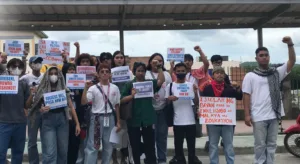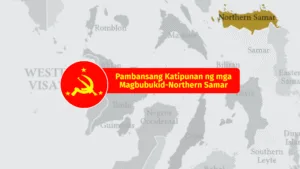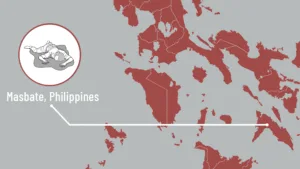Today, July 3, human rights groups and democratic sectors gathered to condemn the Anti-Terrorism Act (ATA), five years after it took effect. The ATA is a repressive law enacted at the height of the Covid-19 pandemic in 2020. They condemned the weaponization of the law to suppress critics, activists, and thousands of farmers and indigenous peoples in rural areas. They renewed their call for the immediate repeal of the law and justice for the victims of the law and of state terrorism.
Since the ATA was enacted, at least 227 individuals have faced charges for violating its provisions and the related Terrorism Financing Prevention and Suppression Act on vague and fabricated grounds. The Anti-Terrorism Council arbitrarily designated thirty-four people as “terrorists,” including consultants of the NDFP in peace talks, indigenous leaders, and activists. Thirty of them remain imprisoned, including alternative media journalist Frenchie Mae Cumpio; development workers Marielle Domequil and Emilio Gabales; church worker Aldeem Yañez; and environmental activist Miguela Peniero. Three of them—Elgene Mungcal, Norman Ortiz, and Lee Sudario—were forcibly disappeared. These cases, which affect a broad segment of society, reveal a clear pattern of sowing terror and suppressing dissent.
Kilusang Magbubukid ng Pilipinas chairperson Ka Daning Ramos emphasized the law’s fascist character. He said that under the Marcos regime, it further intensified militarization, Red-tagging, illegal arrests, and extrajudicial killings in rural areas. The NTF-Elcac also uses this law to impose virtual martial law on farming and national minority communities, drive them from their farms and ancestral lands, and destroy their livelihoods.
Leaders of KMP themselves have become victims of political persecution. Ka Daning experienced intense Red-tagging and surveillance. Soldiers raided the house of its secretary general Ronnie Manalo with the intention of abducting him. Recently, two farmer leaders in Cagayan Valley, Cita Managuelod and Isabelo Adviento, along with three others known as the Cagayan Valley 5, faced charges of violating the TFPSA. Adviento was only recently released after the court dismissed the fabricated case of illegal possession of firearms and explosives filed against him.
Meanwhile, Karapatan described the ATA and TFPSA as state weapons wielded to “impose terrorism without accountability,” criminalize dissent and activism, and violate fundamental freedoms of expression, organizing, and due process.
The group also condemned the “freezing” or control of assets of many humanitarian organizations serving poor communities. These include the Paghida-et Development Group (PDG) based in Negros, Community Empowerment and Resource Network (Cernet) in Cebu, Leyte Center for Development (LCDe), and Rural Missionaries of the Philippines, among others. The freezing of their bank accounts stopped their operations.
Alongside the protest, ACT Representative Antonio Tinio and Kabataan Representative Renee Co filed a proposal in Congress to repeal the ATA.













